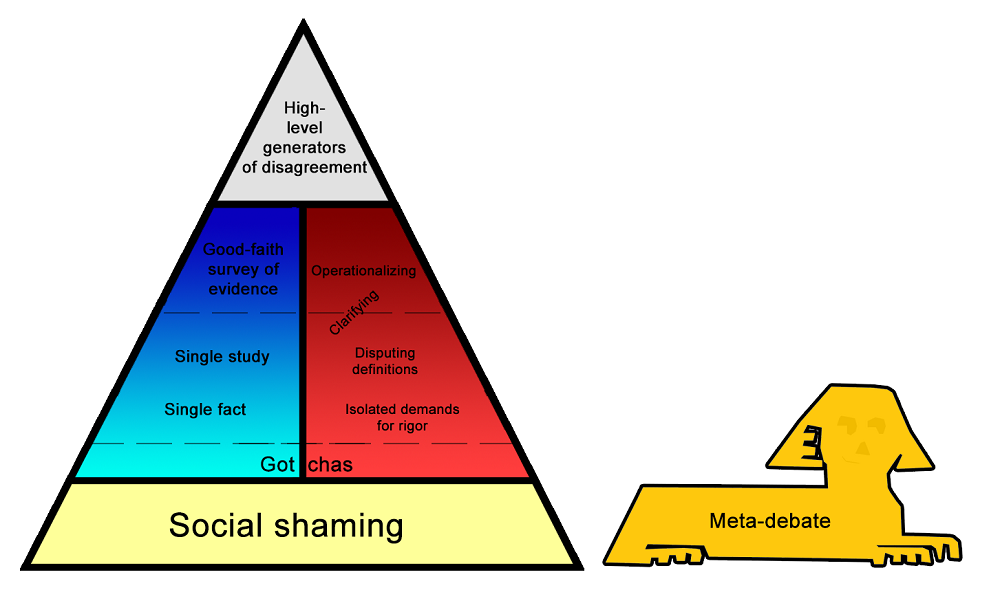After introducing me to the word epistemology, the essays in this book gave me exceptionally well-crafted ideas on thinking, argumentation, and communication.
I had seen and read some of the posts on LessWrong before, and I was fascinated by the sheer effort put into the writing and arguments. These people are highly knowledgeable and experienced. Reading through a bunch of posts on yet another website did not feel as alluring anymore however, because I already spend a good deal of my day staring at screens. I ordered the set of five books bundling the best essays of 2018 by the LessWrong community. These five books are cute! Of size A6, they can just about travel with me in any pocket. Having these essays on paper actually made me read them. Greatly recommended.
There are a couple of ideas that significantly resonated with me.
Firstly, there is the series of three essays by Alkjash in which he brings forth his Babble and Prune algorithm (Babble, More Babble, and Prune). The idea pertains to how humans produce knowledge; first by babbling many random words, later filtering what goes through by some heuristic.
- Babble. Use a weak and local filter to randomly generate a lot of possibilities. Is the word the right part of speech? Does it lie in the same region of thingspace? Does it fit the context?
- Prune. Use a strong and global filter to test for the best, or at least a satisfactory, choice. With this word in the blank, do I actually believe this sentence? Does the word have the right connotations? Does the whole thought read smoothly?
An interesting observation Alkjash makes, is that babies just babble a whole vocal range of "words", and over time improve their Pruning filter via reinforcement learning.
Then there is the problem of outsourcing your Babble too much.
Prune goes into overdrive when you outsource Babble. A bug I mentioned earlier is having way too strict of a Prune filter, compared to the quality of your Babble. This occurs particularly to people who read and listen much more than they write or speak. When they finally trudge into the attic and turn on that dusty old Babble generator, it doesn't produce thoughts nearly as coherent, witty, or wise as their hyper-developed Pruned filter is used to processing.
When reading this, I immediately felt like it applied to me. Only recently did I start making a conscious effort to "dust off" my Babble generator. And on top of that, I am never really convinced that what I am writing is of much added interesting value. How to push myself out of this? Personally it helps me tremendously to experience the inner satisfaction I derive from writing down my thoughts. It actually makes me draw out what I am thinking in a much more conscious manner than I would otherwise ever do.
Secondly, I found the classification of disagreements from Scott Alexander very interesting.

Especially his thoughts on the meta-debate came across as very recognizable. In this type of argument, the discussion is about the debate itself rather than any of the concepts or arguments being debated. So much of what news media portray of national and international politics seems to never rise above the meta-debate. I also noticed that I myself am sometimes guilty of presenting not more than a handful of studies, which clearly favor a specific side of a discussion. This reminds me to put in more effort to strive towards seeking out or conducting proper surveys more.
The final essay of this book was a bit too difficult to fully grasp for me, partly because it built upon concepts described in other essays which also are pretty complex in their own right (and which I hadn't read beforehand!) I am inspired to read more about the gears-level understanding though.
In conclusion, I would wholeheartedly recommend this book (and probably the rest of the bundle too, but I will come back to that later) to anyone who is interested in a rigorous and rational approach to thinking about life. Reading the essays of these people lifts my thinking and inspiration to a more conscious level.